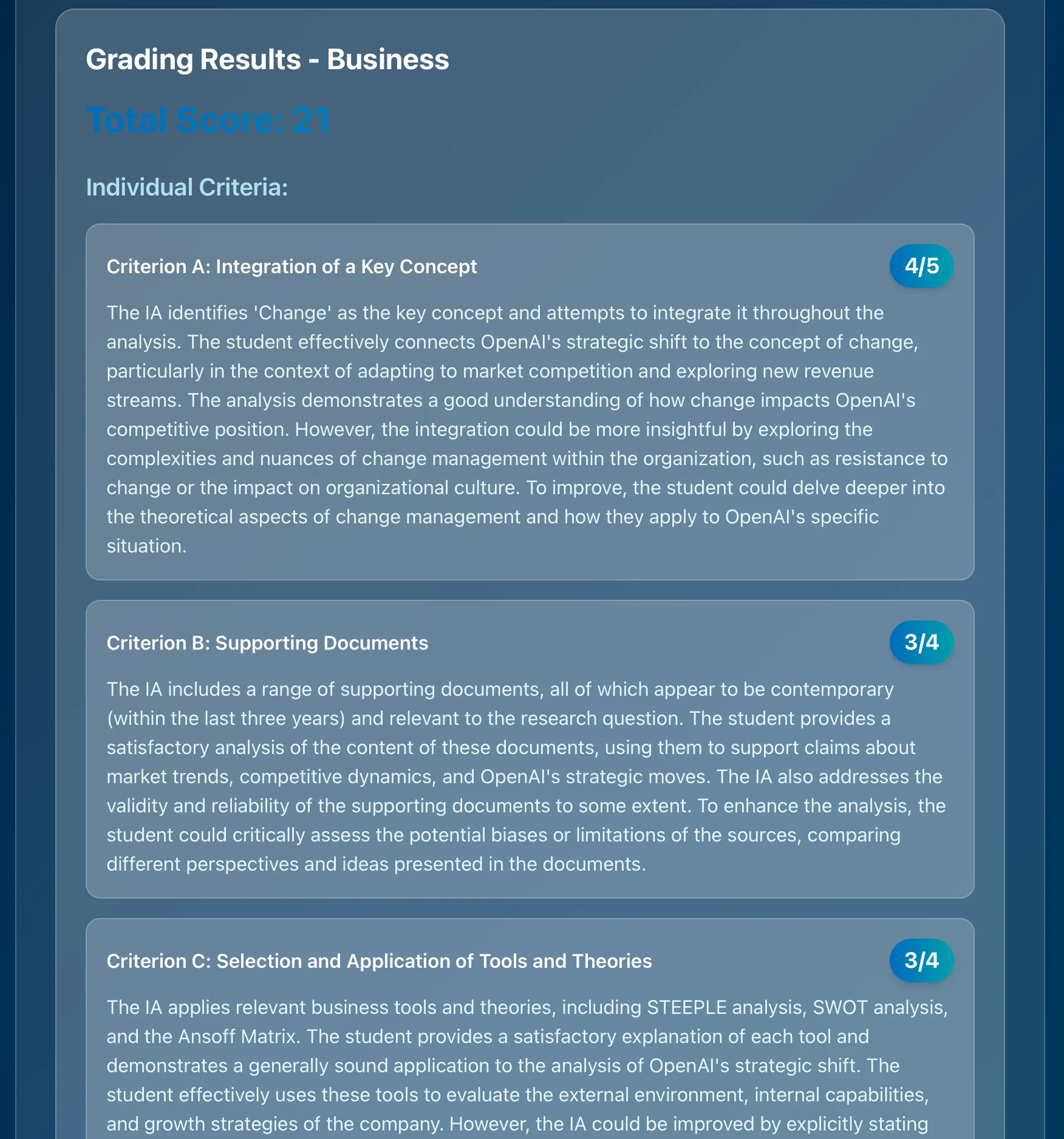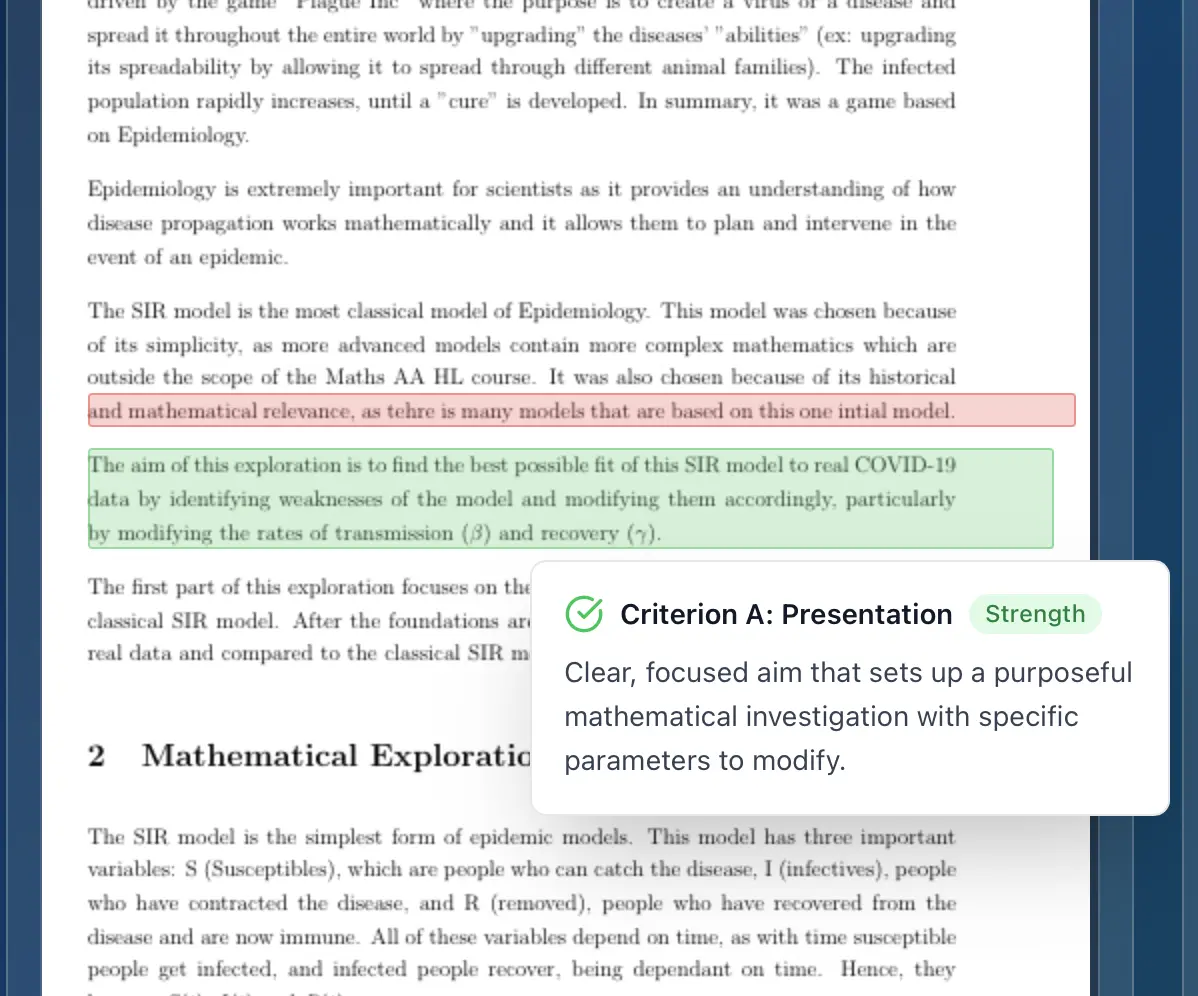How to Write a Successful IB Mathematics Extended Essay
Are you an International Baccalaureate (IB) student tackling the Mathematics Extended Essay? This challenging but rewarding assessment requires you to delve deep into a mathematical topic of your choice. This guide provides a comprehensive roadmap to help you write a successful IB Mathematics Extended Essay, covering everything from topic selection and research to structuring your essay and maximizing your marks. We'll break down the key criteria, address common pitfalls, and offer advanced strategies to help you achieve a top grade.
Introduction (Answer the Query Immediately)
The IB Mathematics Extended Essay (EE) is a 4,000-word independent research paper that allows you to explore a mathematical topic in depth. To write a successful EE, you need to choose a focused topic, conduct thorough research, demonstrate a strong understanding of mathematical concepts, and present your findings in a clear and logical manner. This guide will walk you through each step of the process, providing practical advice and strategies to help you excel. We'll cover topic selection, research methodologies, structuring your essay, common mistakes to avoid, and advanced techniques to elevate your work. Let's get started on your journey to a high-scoring IB Mathematics Extended Essay!
Struggling with IB Assessments?
Get instant, detailed feedback on your work with AI that understands IB criteria.

Core Content Sections
1. Choosing the Right Topic: Setting the Foundation for Success
The first, and arguably most crucial, step is selecting a suitable topic. Your topic should be:
- Manageable: Can you realistically explore it within the 4,000-word limit? Avoid overly broad topics.
- Interesting: Are you genuinely interested in the topic? This will make the research process more engaging and lead to a better essay.
- Mathematical: Does it involve significant mathematical concepts and techniques?
- Researchable: Are there sufficient resources available to support your research?
Examples of Good Topics:
- The Mathematics of Cryptography: Exploring the mathematical principles behind encryption algorithms like RSA.
- Fractals and Their Applications: Investigating the properties of fractals and their use in fields like computer graphics or image compression.
- Game Theory and its Applications in Economics: Analyzing strategic interactions using game theory models.
- The Mathematics of Financial Modeling: Examining the mathematical models used to predict stock prices or manage risk.
- The applications of Linear Algebra in Machine Learning: Exploring how linear algebra is used in machine learning algorithms.
Examples of Topics to Avoid:
- Basic Calculus: Too broad and lacks depth.
- A History of Mathematics: Focuses on history rather than mathematical analysis.
- Simple Statistics: Lacks the complexity required for an EE.
Actionable Tip: Brainstorm a list of potential topics that interest you. Then, research each topic to assess its feasibility and the availability of resources. Discuss your ideas with your teacher for feedback.
2. Developing a Strong Research Question
Once you have a general topic, you need to formulate a specific research question. This question will guide your research and provide a clear focus for your essay. A good research question should be:
- Focused: Narrow enough to be addressed within the word limit.
- Answerable: Can you realistically find evidence to support your answer?
- Challenging: Does it require you to go beyond simple description and engage in analysis and evaluation?
Examples of Good Research Questions:
- "To what extent can the RSA algorithm be considered secure against modern cryptanalytic attacks?"
- "How can fractal geometry be used to model the coastline of a specific geographical region?"
- "To what extent can game theory predict the outcome of a specific real-world auction?"
- "How accurately can the Black-Scholes model predict the price of European options under varying market conditions?"
- "How does the choice of activation function impact the performance of a neural network in image classification?"
Actionable Tip: Refine your research question iteratively as you conduct your research. Be prepared to adjust it if you find that it is too broad, too narrow, or unanswerable.
3. Conducting Thorough Research
Effective research is essential for a successful EE. You should:
- Consult a variety of sources: Textbooks, academic journals, online databases, and reputable websites.
- Take detailed notes: Summarize key findings, record citations, and note any questions or ideas that arise.
- Critically evaluate your sources: Assess their credibility, relevance, and potential biases.
- Organize your research: Use a system to keep track of your sources and notes.
Actionable Tip: Use a citation management tool like Zotero or Mendeley to organize your sources and generate citations automatically.
4. Structuring Your Essay for Clarity and Impact
A well-structured essay is crucial for conveying your ideas effectively. A typical structure for a Mathematics EE includes:
- Introduction:
- Introduce your topic and research question.
- Provide background information and context.
- State your thesis statement or main argument.
- Outline the structure of your essay.
- Body Paragraphs:
- Develop your argument in a logical and coherent manner.
- Present evidence from your research to support your claims.
- Analyze and evaluate the evidence.
- Use mathematical notation and diagrams appropriately.
- Conclusion:
- Summarize your main findings.
- Restate your thesis statement.
- Discuss the implications of your research.
- Suggest areas for further research.
Actionable Tip: Create an outline before you start writing to ensure that your essay has a clear and logical structure.
5. Demonstrating Mathematical Understanding
The IB Mathematics EE is not just about research; it's about demonstrating your understanding of mathematical concepts and techniques. You should:
- Use appropriate mathematical notation and terminology.
- Explain your mathematical reasoning clearly and concisely.
- Provide detailed proofs and calculations.
- Use diagrams and graphs to illustrate your ideas.
Actionable Tip: Review relevant mathematical concepts and techniques before you start writing. Practice applying these concepts to your research topic.
6. Presentation Matters: Formatting and Style
The presentation of your essay is also important. You should:
- Follow the IB's formatting guidelines.
- Use a clear and concise writing style.
- Proofread your essay carefully for errors in grammar and spelling.
- Include a title page, table of contents, and bibliography.
Actionable Tip: Ask a friend or teacher to proofread your essay before you submit it.
Common Challenges/Mistakes Section
Many students struggle with the IB Mathematics EE. Here are some common challenges and mistakes to avoid:
- Choosing a topic that is too broad or too narrow: Select a topic that is manageable and allows for in-depth analysis.
- Failing to formulate a clear research question: A well-defined research question is essential for guiding your research.
- Not conducting thorough research: Consult a variety of sources and critically evaluate their credibility.
- Lacking mathematical understanding: Review relevant mathematical concepts and techniques.
- Poorly structuring the essay: Create an outline to ensure a clear and logical structure.
- Failing to demonstrate critical thinking: Analyze and evaluate the evidence you present.
- Poor presentation: Follow the IB's formatting guidelines and proofread your essay carefully.
- Plagiarism: Always cite your sources properly to avoid plagiarism.
Actionable Tip: Review the IB's Extended Essay guide and the Mathematics subject guide for detailed information and guidance.
Pro Tip: Get AI-Powered Grading
Stop second-guessing your grades. Get instant feedback aligned with official IB rubrics.

Advanced Tips/Strategies Section
To take your IB Mathematics EE to the next level, consider these advanced tips:
- Go beyond the textbook: Explore advanced mathematical concepts and techniques.
- Develop your own mathematical models or proofs: Demonstrate originality and creativity.
- Connect your research to real-world applications: Show the relevance and significance of your work.
- Critically evaluate the limitations of your research: Acknowledge any weaknesses or biases in your methodology.
- Seek feedback from experts in the field: Get advice from mathematicians or researchers who specialize in your topic.
- Use advanced mathematical software: Tools like Mathematica, MATLAB, or Python can help you perform complex calculations and create visualizations.
Example: Instead of simply describing a mathematical concept, try to extend it or apply it in a novel way. For instance, if you're writing about fractals, you could develop your own algorithm for generating a new type of fractal.
Technology and Modern Assessment Section
Technology is revolutionizing education, and the IB is no exception. AI-powered tools are increasingly being used to support both students and teachers in the assessment process.
For students, AI can provide personalized feedback on their work, helping them to identify areas for improvement and track their progress. For teachers, AI can automate many of the time-consuming tasks associated with grading, freeing them up to focus on providing more individualized support to their students.
Marksy is a leading AI grading assistant specifically designed for the International Baccalaureate. It provides instant, accurate, and detailed feedback on student work based on official IB rubrics. Marksy uses the official IB criteria to ensure accuracy and fairness, providing rubric-aligned scoring, detailed criterion-by-criterion feedback, and suggestions for improvement. This not only saves educators valuable time but also ensures consistent and high-quality assessment. By leveraging AI, teachers can provide more comprehensive and timely feedback, ultimately helping students to better understand the requirements of the IB program and achieve their full potential.
Marksy's AI algorithms analyze student work against the official IB rubrics, providing detailed feedback on areas such as:
- Focus and Method: Assessing the clarity of the research question and the appropriateness of the methodology.
- Knowledge and Understanding: Evaluating the student's understanding of relevant mathematical concepts and terminology.
- Critical Thinking: Assessing the student's ability to analyze, evaluate, and draw conclusions.
- Presentation: Evaluating the structure, layout, and overall presentation of the essay.
- Engagement: Assessing the student's engagement with the research process.
By using Marksy, students can gain a deeper understanding of the IB assessment criteria and receive targeted feedback to help them improve their work. Teachers can save time and ensure consistent grading, allowing them to focus on providing more personalized support to their students.
Conclusion with Clear Next Steps
Writing a successful IB Mathematics Extended Essay requires careful planning, thorough research, a strong understanding of mathematical concepts, and effective communication skills. By following the advice and strategies outlined in this guide, you can increase your chances of achieving a top grade.
Key Takeaways:
- Choose a manageable and interesting topic.
- Formulate a clear and focused research question.
- Conduct thorough research and critically evaluate your sources.
- Structure your essay logically and coherently.
- Demonstrate your understanding of mathematical concepts and techniques.
- Pay attention to presentation and formatting.
- Avoid common mistakes and challenges.
- Consider using AI-powered tools like Marksy to improve your work.
Next Steps:
- Brainstorm potential topics and discuss them with your teacher.
- Develop a detailed research plan and timeline.
- Start conducting your research and taking detailed notes.
- Create an outline for your essay.
- Write a first draft and revise it based on feedback.
- Proofread your essay carefully before submitting it.
Ready to elevate your IB Mathematics Extended Essay? Try Marksy for free today and experience the power of AI-driven feedback! See how our platform can help you understand the IB criteria, identify areas for improvement, and achieve your academic goals. Teachers can also sign up for a free trial to streamline their grading workflow and provide more consistent, detailed feedback to their students. Visit our website now to learn more and get started!